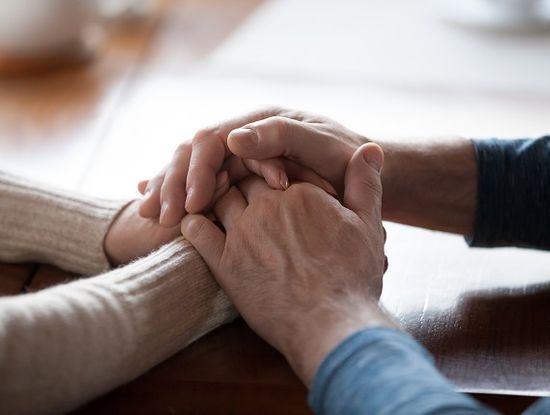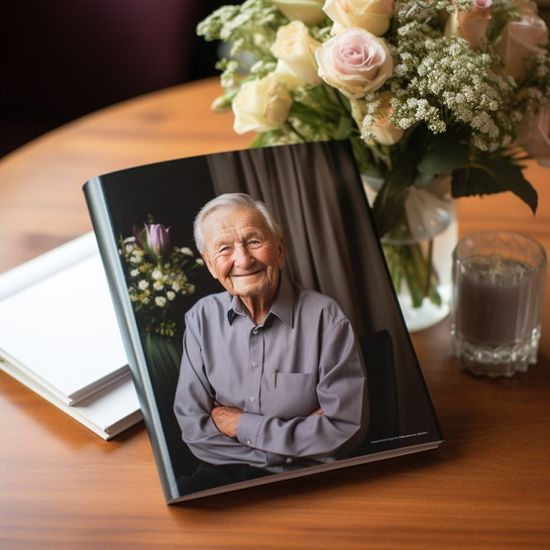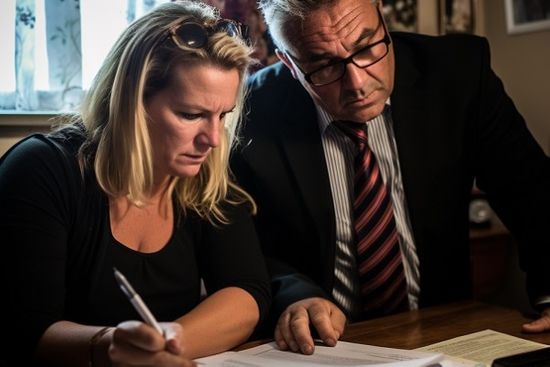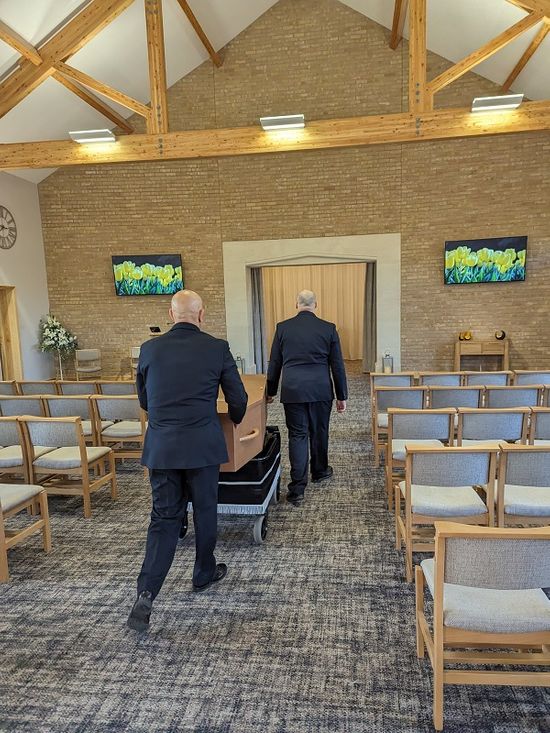You can never really fully prepare for your own death. No one knows the emotions, feelings, and thoughts that will come up at the time of our death until we're in that position ourselves.
But there are things we can do to help ourselves, and our loved ones, when we're in that position, to ensure our last wishes are met and the process runs smoothly.
In this article we'll look at some of the ways you can emotionally prepare, as well as funeral arrangements, will writing and more.
Facing your own death is an incredibly difficult experience to wrestle with. It's easy to say we need to reach acceptance, but it's much easier said than done.
We will go through a number of different emotions as we get near to the end. Sorrow, anxiety, fear, perhaps powerlessness, and each feeling and emotion is completely valid and natural.
But what is in our power is to say the things that were previously left unsaid and repair relationships that have gone through some type of turbulence. Now, more than any time in our lives, is the time to tie up the loose ends.

Guilt is one of the most prevalent emotions many of us feel when faced with grief - be it facing our own mortality or having lost a loved one. We may feel guilty about something we said or a relationship that broke down. But whilst we are here, there is always the chance to repair a relationship and in our last few months it's important not for only ourselves, but also the people that we leave behind, that we mend what has been broken.

Not every moment has to be a moment of sorrow. If we feel up to it, we can also do the things we've always wanted to do or the things that make us happy. Maybe it's to ride along the Orient Express, maybe it's to spend time with our nearest and dearest. We may want to tell family stories we've never told before. Now is the time to give our family a legacy to remember us by and provide them with moments that'll never leave their heart.

The grief of facing our own death will take a toll on both the body and the mind. We may feel depressed, angry or guilty. We may not be able to eat or sleep. But it's important to remember that everything we experience is a natural part of grief and there are people out there who can help. That may be a family member or friend, or it could be someone professional. Below are a few numbers that may be of assistance.
Setting up a funeral plan while preparing for your own death can be an act of love and consideration for those you’ll leave behind. Here are a few reasons why you might think about taking this thoughtful step:
Ease the burden on loved ones
During the grieving process, your family will have many decisions to make and difficult emotions to navigate. Having a funeral plan in place can alleviate the pressure of making arrangements, allowing them to focus on supporting one another and honouring your memory.
Financial security
Funerals can be expensive, and the costs can add an unexpected financial burden to your loved ones during an already difficult time. By prepaying (in a single payment or over a longer period) you can ensure that the expenses are covered, providing peace of mind and financial relief.
Respecting your wishes
A funeral plan allows you to clearly communicate your funeral preferences. As well as your chosen type of burial or cremation, you can also consider specific details about the service and any personal touches you wish to include. Your loved ones will have the comfort of knowing they are honouring your wishes.
Provide a sense of control
Planning your funeral allows you to have a sense of control over one of life's final events. It can be empowering to know that you have taken steps to ensure your farewell is handled in a way that reflects your values and personality.
The gift of peace of mind
Ultimately, having a funeral plan can bring peace of mind to both you and your loved ones. Knowing that everything is taken care of can provide comfort and reduce anxiety about the future.
We all want to leave some kind of legacy when we go. This may involve giving our loved ones some great memories to remember us by or passing on what we own to the next generation.
There are a number of things to pass on, and there are a number of things we need to consider when we die, including our will, digital assets and accounts, pets and important paperwork that may be stored at home.
Here's a quick rundown of all the things you may need to consider.

Writing a last will (also known as a last will and testament) is an important legal document that allows you to specify how your assets and estate should be distributed after your death. It gives you peace of mind, control of your legacy and helps to avoid family disputes.

Creating a letter of instruction to provide guidance on specific matters not covered in your legal documents is an important thing to consider. This letter of instruction can include personal messages, wishes for the care of pets, the location of important paperwork, or directions on sentimental items.

The well-being of your pets after you die is an important aspect of estate planning. You will need to designate a caregiver and maybe even provide some kind of financial provision and care instructions so your pet can remain in capable and comfortable hands.

Your digital assets and passing on access to any digital accounts is an important consideration so that your family don't lose out on any financial investments such as access to online bank accounts, and so your family has access to any digital memories like photos stored online or on a social media account.

Consider your preferences for end of life care. This includes decisions about life-sustaining treatments, resuscitation, pain management, and hospice care. You might like to inform your loved ones of your wishes or more formally you can document your choices in advance using something like a living will.

It's important to consult with legal and financial professionals such as a lawyer and a financial advisor regarding all your estate planning so you can ensure your plans are legally sound and aligned with your goals and what you want your legacy to look like.
Preparing for your own death is a deeply personal and emotional process, and organising your finances is an essential part of ensuring your loved ones are taken care of when you're no longer here. Sorting out your finances ensures that your financial affairs are in order and that your wishes are respected, allowing your family to focus on supporting each other, healing and remembering you fondly.
It can be overwhelming to know where to start, so, we’ve created a checklist of sorts for you to refer to when putting your finances in order.
If you're struggling or would just like someone to talk to, below are a few helplines that do great work and provide a shoulder to lean on for anyone who needs support:
Samaritans (Call: 116 123) - Free 24/7 support for anyone needing any kind of emotional support
Cruse (Call: 0808 808 1677) - Free helpline supporting those suffering with grief
Veterans UK (Call: 0808 191 4218) - Government-ran support organisation providing free support for veterans and their families
Age UK (Call: 0800 678 1602) - The UK's leading charity helping millions of older people with support, companionship and advice
The Silver Line (Call: 0800 470 8090) - Free 24/7 helpline for older people struggling with loneliness, sadness or lowness
If you're looking for palliative care, a hospice or further information about end of life support, here are a few places that can help:
Hospice UK - Hospice care finder showing you the nearest hospices to you
NHS palliative care services - Palliative care finder showing you the near palliative care services to you
Marie Curie - Leading end of life charity providing support line, hospice care, frontline nursing and information on dying and bereavement
Many of us have an idea of what we want our funeral to look like when we die. But there are a number of different aspects we need to consider.
For example, how much will the funeral cost? Do I want a burial or a cremation funeral? Do I want a simple funeral? Do I even want a funeral?
To answer some of those questions for you, below are a few helpful resources.

The choice between a cremation or burial can be a complex one with many factors to consider including the cost, environmental impact and religious beliefs.
Cremation or burial?
Alternatives to a traditional funeral have become more popular in recent years. In this article we outline the options and look at why people are opting for something different.
Alternatives to a traditional funeral
Direct cremations are becoming more popular as a funeral option, providing a fuss-free and respectful way to say goodbye to a loved one. But what is a direct cremation?
Discover direct cremationsWhether you're wanting to arrange a funeral today, plan for the future, or looking for something else, our customer service specialists are here for you 24/7 to answer any questions you may have.
Ask a question today or call us on 01543 211997.
Ask a questionBelow are a few more resources that may help when it comes to planning for your own death.

If you’re looking at arranging your own funeral, you’ll need to know exactly how much a funeral costs so that you can make the appropriate arrangements. These can differ depending on a number of factors.
Funeral costs
Planning a memorial service isn't always straightforward. In our guide, we'll provide you with practical information on how to organise a memorial service whether you're pre-planning for yourself or for a loved one close to your heart.
Planning a memorial service
The death of a loved one can be difficult and overwhelming. Understanding what your family need to do when you die, and when to do it, can help ease the stress and confusion they may experience.
What to do when someone diesWe offer the highest level of support, but don't just take our word for it. Below are recent reviews from customers who bought a funeral with us.





